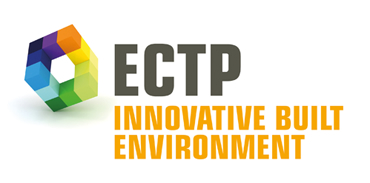
CETIEB
Cost-Effective Tools for Better Indoor Environment in Retrofitted Energy Efficient Buildings
Start date: 01.10.2011
Duration: 36 months
Coordinator: University of Stuttgart - MPA
Budget: 3.59 M€
Details
Refurbishing to increase the energy performance of buildings leads to tight buildings and may result in air exchange rates that are lower than required. The quality of the indoor environment is often degraded as a result. The CETIEB project has addressed this issue by developing smart monitoring solutions, as well as active and passive ways to improve indoor climates.
As a first step, the team identified relevant indoor environment quality parameters, the impact of retrofitting buildings, existing regulatory gaps and strategies for enhancing indoor environments. These findings have been summarised in guidelines and disseminated to the public, and they are also available on the CETIEB website.
Monitoring and controlling the indoor environment
A number of cost-effective, easy-to-use monitoring systems were developed and evaluated. These include advanced sensors to detect volatile organic compounds and light, as well as an infrared system to monitor temperature and energy fluxes, and commercial sensors for carbon dioxide, ultraviolet light and air velocity. Middleware that allows users to monitor and control the indoor environment was also developed and will be sold to HVAC (heating, ventilation and air conditioning) companies.
Advanced sensor increases precision
A particularly promising technology is an advanced IR spectrometric VOC sensor that can detect volatile organic compounds (VOCs) to the level of 2ppm. While not as sensitive as the existing Total VOC MOX sensor arrays, the new sensor has the advantage of using the spectrum to easily distinguish between different substances.
The sensor could be used in medical or safety applications, and is already being supplied on an OEM basis to a number of companies. It is a compact microspectrometre which is based on a detector with an integrated MEMS (Microelectromechanical system) Fabry-Pérot filter on a chip and less expensive than existing systems.
Maintaining thermal comfort
The infrared thermal comfort system that was developed is also innovative. Normally, thermal sensors are only to be found in walls and have limited coverage. The infrared system, in contrast, scans an entire room including walls and floors, and assesses the thermal comfort of different zones in a room. It can, for example, account for the effects of incoming sunlight that may heat up only one part of a room, or differences between the comfort level of a teacher (who may be standing and more active) and a pupil (who may be sitting and more passive). The system realised a 15 % energy savings in testing and its developers from the Università Politecnica delle Marche in Ancona, Italy have applied for a patent and are planning a spin-off.
New insulating and filtering systems
CETIEB also developed a Passive Plaster System, constructed from three sandwich layers, that reduces indoor temperature and humidity variations and through photo-catalytic activity removes indoor air pollutants. The insulating mortar, the first functional layer of the system which is fully mineral, is particularly promising. In a further development after the project it was able to reach a thermal conductivity of 0.060 W/(mK) compared to 0.066 W/(mK) of conventional polystyrene containing plasters. Schwenk Putztechnik GmbH & Co. KG , the developer of the insulating layer, plans to launch products based on it in Switzerland and Germany.
One of the active control systems developed is an air biofilter prototype. It filters, cleans, humidifies and oxygenates air drawn through it, reducing VOC concentrations by up to 50 %.
List of achievements
The CETIEB project video can be found here.
Reporting, results and news about the project available on CORDIS.
Contact
Contact person: Dr. Jürgen Frick
Address: Materials Testing Institute – MPA, University of Stuttgart
Tel: +49 (0) 711/ 685-63381
email: Juergen.Frick@mpa.uni-stuttgart.de
Documents
D2.1 Matrix of measures and impact report
D2.5 Guidelines addressing variety of stakeholders
D6.2 Information about best measuring points for the sensors
D8.4 Report on training activities
Status
Finished












